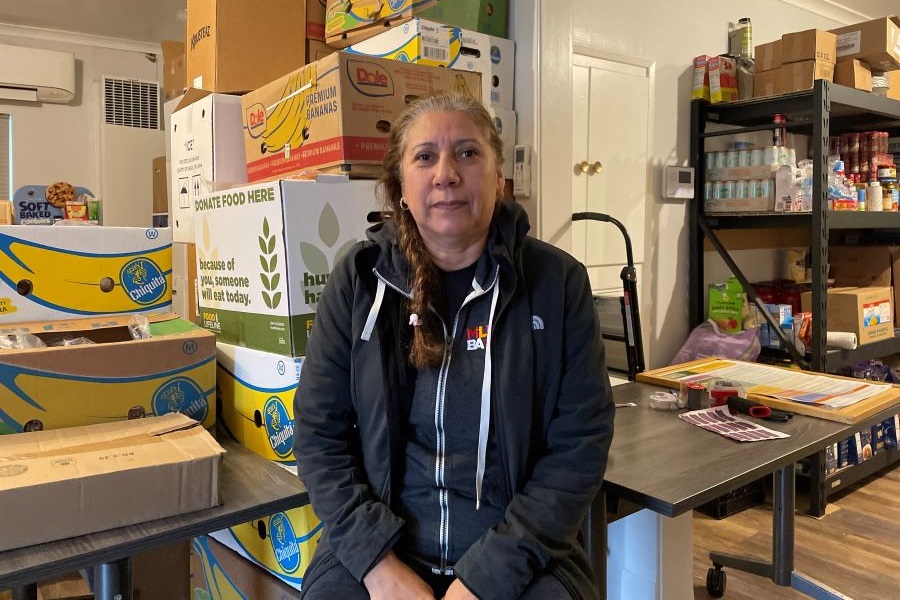Enabling Dignified and Equitable Access to Healthy Food
The need for grocery deliveries extends far beyond the COVID-19 response. When it comes to emergency food support, it’s crucial that we invest in sustainable and scalable solutions that address the barriers faced by the most vulnerable in our community. With over a half a million deliveries in King County in just two years, United Way’s Home Grocery Delivery Program intends to do just that.
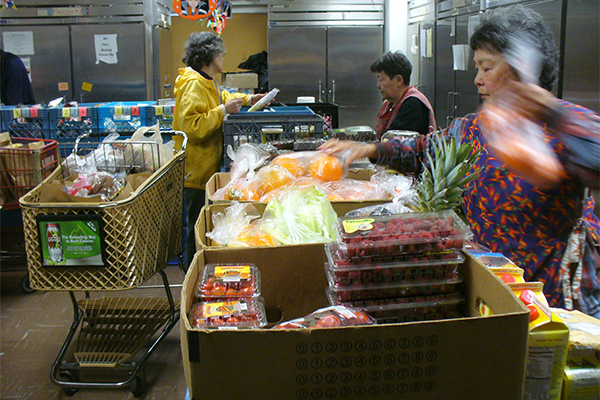
Through a partnership with DoorDash and dozens of King County food banks, the Home Grocery Delivery Program reimagines the way the emergency food system works so that we can better serve all our neighbors, including low-income and households of color.
“Most of these seniors are over the age of 75, don’t speak English and live alone. Most use a cane or walker and carrying groceries is very difficult for them. They cannot go to the food bank themselves.”
United Way’s Home Grocery Delivery Program in partnership with local community advocate Nora Chan, now provides free boxes of Asian-specific groceries to over 100 seniors, identifying as Asian and living in the International District each week.
At a Glance
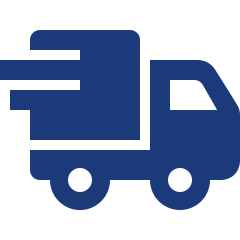
United Way’s Home Grocery Delivery Program has completed over 700,000 such deliveries —a major milestone that sets the program apart as the largest food bank delivery service in the nation
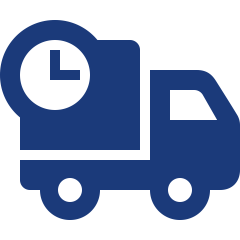
130,000+ deliveries in 2023 alone

Continues to serve 4,000 King County households each week

70% of participants identify as people of color
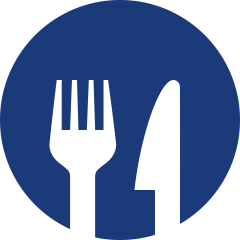
One-third of all households served receive culturally specific groceries
Meeting the Need
Now that federally-funded programs for economic recovery have ended, it’s more critical than ever that we help families maximize their income so they can be prepared for whatever life throws at them. Helping supplement their nutrition and offset rising food costs is a key strategy to do that.
For many community members, visiting their local food bank in person is not an option—often due to disability, childcare needs, lack of transportation, or work hours that conflict with food bank hours.
An analysis of United Way’s Home Grocery Program, completed in December 2021 by the University of Washington’s Master of Public Health program, shows that grocery deliveries meet several of the community’s needs that are not addressed by the traditional emergency food system.
The keys to the Home Grocery Delivery Program’s success? It’s accessible with a simple and low barrier application process. It eliminates stigma associated with foodbanks and avoids limitations of accessing food at foodbanks should their operating hours conflict with work schedules. It also provides more choices to meet families’ food preferences.

Did you know that participating households are more likely to have children than those visiting food banks in person?
Participants also have larger households with more children than low-income households in King County as a whole.
38% of program participants report living with a disability and 64% of participating households include seniors—compared to 14% and 28% of low-income households county-wide, respectively.
Working With Community Partners To Provide Culturally Specific Food
Our latest partnership is with the Black-led Urban Food Systems Pact in Skyway to launch a Black/African American grocery box menu. Enrolled black households now receive these grocery boxes with a combination of items like black eyed peas, corn meal, collard greens, cheese, spaghetti etc. every other week.
Other culturally relevant boxes in this program include East African halal, Latino, Asian and Pacific Islander options.
How it Works
We worked side by side with communities to inform how this program works. Using an easy to apply for, centralized home delivery model, it supplements the current emergency food system and meets the needs of our neighbors by bringing the food directly to their door in a reliable and safe way.
To reduce barriers, neighbors can participate in this program regardless of their citizenship or immigration status. It’s easy to access—and free!
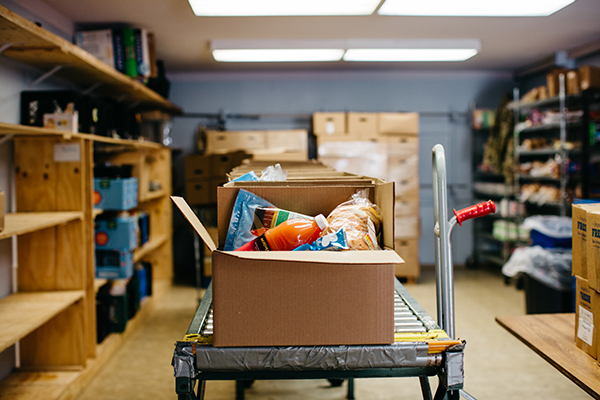
1. A box or bag of essential groceries is prepared by a local food bank or food justice agency.
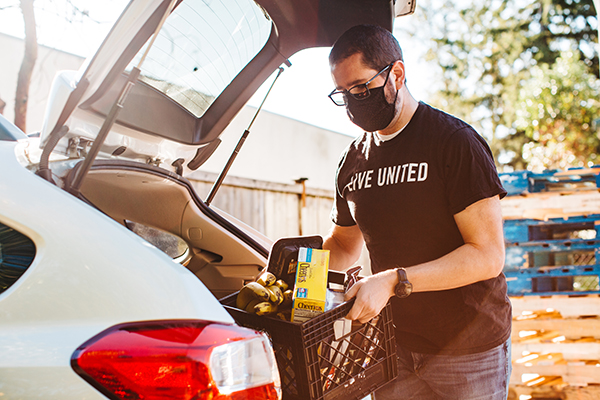
2. A DoorDash or Amazon Flex driver picks up the food.
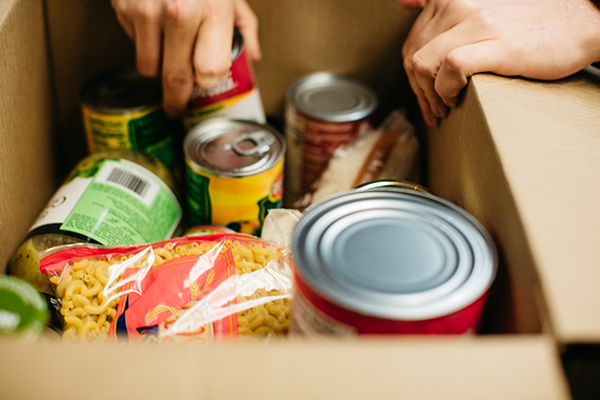
3. The driver delivers to a King County household in need.
“I look forward to Tuesday afternoons…It’s like happiness in a bag.
After I had a stroke last year, I had to take a lower paying job, and the food deliveries have helped me and my child a lot. They’re much needed and appreciated. Thank you for your generosity.”
—Dorene, a Rainier Valley resident and single mother who has been getting weekly Home Grocery Deliveries since summer 2022
Need Help?
Whether you’re unable to access your local food bank or can’t afford to stock your pantry right now, help is on the table. Join the waitlist to receive free, home delivery of groceries through our community partnerships.
Real People. Real Stories.
-
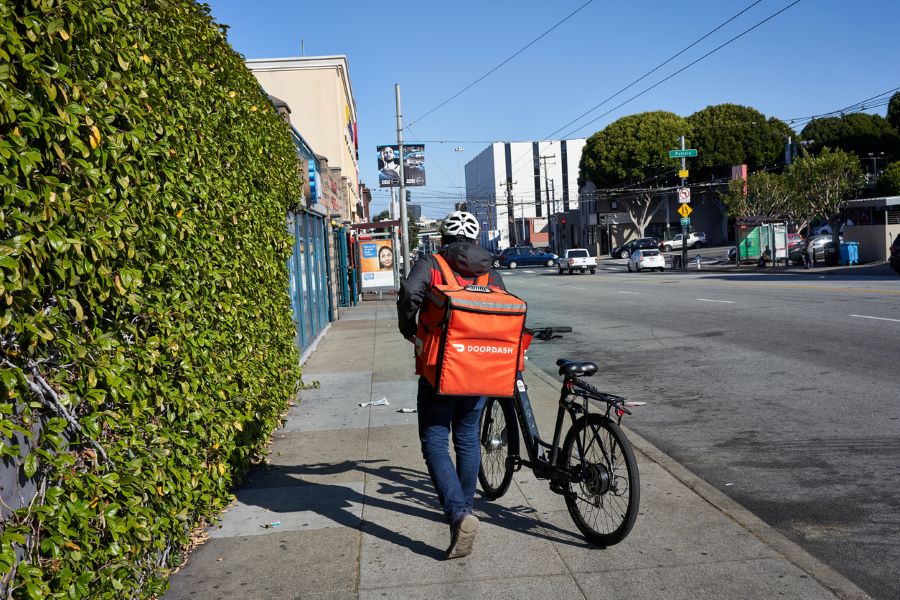
United Way’s Home Grocery Delivery Program Still Going Strong!
This blog post was written by Olivia Schwartz, United Way AmeriCorps Food Security Collaborator VISTA. United Way of King County’s […]
-
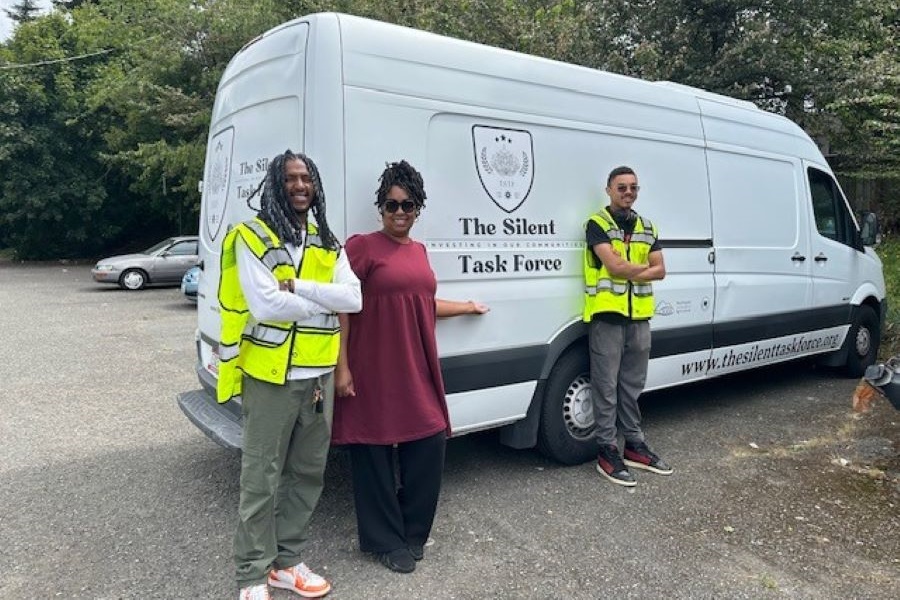
Here comes the new African American Home Grocery Delivery Box!
This blog post was written by Olivia Schwartz, United Way AmeriCorps Food Security Collaborator VISTA. United Way of King County’s […]
Support Our Work
With the need for hunger relief in King County soaring, our goal is to work with the community to help feed it. The more money we raise, the more people we can help. Every dollar counts.

